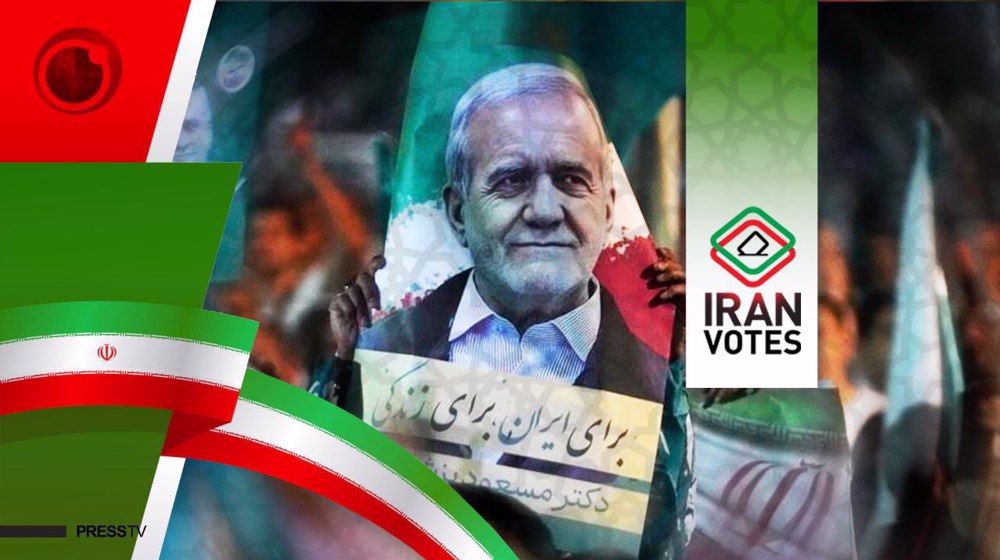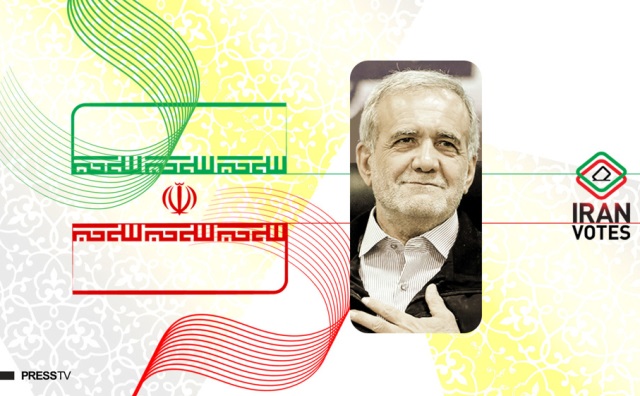Profile: Masoud Pezeshkian, the president-elect of the Islamic Republic of Iran
Masoud Pezeshkian, a seasoned lawmaker and former health minister, has been declared the winner of the Iranian presidential runoff election, defeating his opponent Saeed Jalili.

Masoud Pezeshkian, a seasoned lawmaker and former health minister, has been declared the winner of the Iranian presidential runoff election, defeating his opponent Saeed Jalili.
According to the final vote count announced by the election headquarters early on Saturday, Pezeshkian has been elected as the ninth president of the Islamic Republic of Iran.
He received 16,384,403 votes out of the total 30,530,157 votes, while his opponent Jalili garnered 13,538,179 votes in Friday’s runoff election, which saw a significantly high voter turnout.
Pezeshkian will replace Ebrahim Raeisi, a widely popular president who passed away in a helicopter crash on May 19 in northwestern Iran, along with seven others.
Pezeshkian was one of the six candidates approved by the Constitutional Council (also known as the Guardian Council), the 12-member election supervisory body, to run in the presidential election last month.
He emerged as the frontrunner in the June 28 election after receiving 10.4 million votes, followed by Jalili with 9.4 million, although both fell short of the outright majority of 50 percent plus one vote.
Born on September 29, 1954, in Mahabad, West Azarbaijan province, Pezeshkian has represented the northwestern city of Tabriz in the 12th Iranian parliament.
His political journey has been remarkable, rising through the ranks to hold the important cabinet portfolio of Health Minister under President Mohammad Khatami (2001-2005).
A seasoned parliamentarian, Pezeshkian was elected to the 8th, 9th, 10th, and 11th parliaments. Between 2016 and 2020, he also held the position of first deputy speaker.
He previously ran for the presidency in 2013 and 2021 but failed to make significant progress both times.
A cardiac surgeon by training, Pezeshkian also served as the chancellor of Tabriz University of Medical Sciences and is currently a member of the academic staff at this prestigious university in northern Iran.

After receiving approval from the country’s top election supervisory body to run in the June 28 election last month, he took to X (formerly Twitter), using ‘For-Iran’ as his campaign slogan.
He introduced his plans, emphasizing the importance of entrusting tasks to experienced and knowledgeable individuals in his administration.
He also announced Javad Zarif, the former Iranian foreign minister, as his choice to head the country's foreign ministry, while vowing to implement the directives of the Leader of the Islamic Revolution Ayatollah Seyyed Ali Khamenei.
Pezeshkian officially joined the race for the top executive office on June 1, the third day of registration, at the interior ministry in Tehran, accompanied by a group of supporters.
He underscored the importance of unity and coherence among all political factions in the country, emphasizing the significance of competence, skill, and experience over political affiliations.
In the presidential runoff debates, Pezeshkian highlighted the significance of upholding and fulfilling promises as a pivotal factor in maintaining moral standards.
He stressed the importance of showing respect towards individuals, ensuring their voices are heard, and advocating for actions based on principles of justice and righteousness.
The former health minister also underscored the crucial role of trust in propelling the nation forward, emphasizing that honesty is essential in cultivating trust among the populace.
He reiterated the guiding principle of the country's foreign policy as "Neither East nor West," outlining his government's commitment to advancing national interests in the foreign policy sphere.
Pezeshkian underscored the importance of prioritizing relationships with neighboring nations and expanding global connections to foster the country's growth while emphasizing the necessity of diversifying foreign policy options to enhance trade and engagement.
On many occasions, he reiterated his commitment to abiding by the Islamic Republic’s legal framework and the policies defined by the Leader of the Islamic Revolution Ayatollah Seyyed Ali Khamenei.

